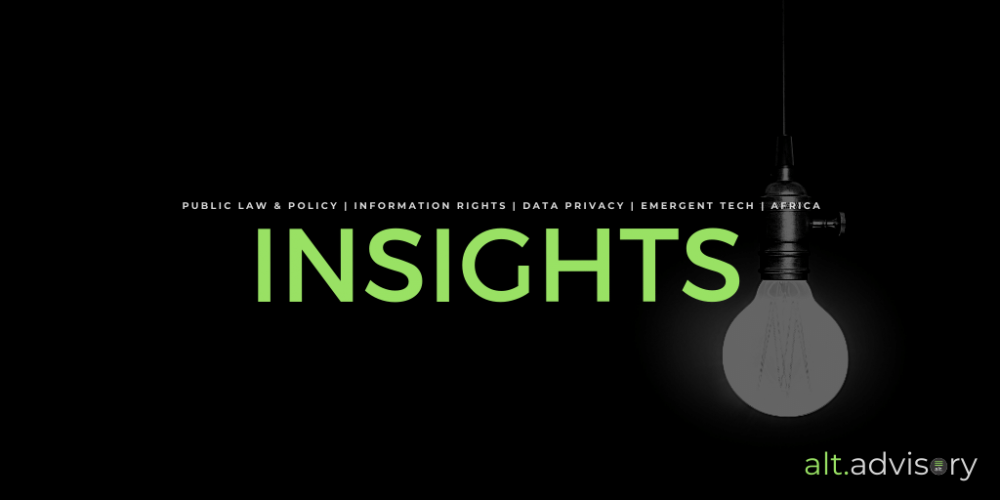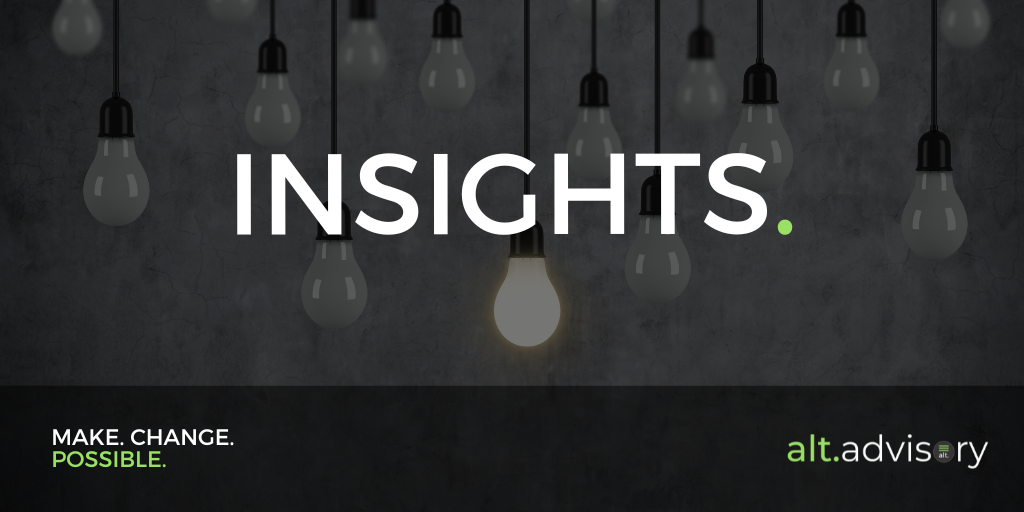Democracy 2.0: A Concept Note
ABSTRACT
Due to increasing reliance on technology and the comparatively slow rate of development of state institutions, ALT Advisory’s Democracy 2.0 Special Project is examining how democracy can be future-proofed for the modern age.
KEYWORDS
Democracy – social media – surveillance capitalism – tech savourism – false news – digital identity – digital voting systems – elections
THE DEMOCRATIC CONDITION
Democracy is not only a system of government; for many it is a ‘core value’ of our modern societies. It did not become the dominant form of government until after the second world war, and even then it was in fierce competition with communism until the fall of the Berlin Wall in 1989. (See Fukuyama’s so-called ‘end of history.’) Since then, democracy has become the undisputed governmental goal of most countries in the world. Even illiberal states or autocracies attempt to speak the language of democracy and manipulate their institutions and elections to make them appear democratic.
Democracy has never ‘worked’ perfectly. As Winston Churchill aptly put it, “democracy is the worst form of Government, except for all those other forms that have been tried from time to time.” In most — if not all — countries, groups of people have always been and continue to be either fully or partially excluded from meaningful participation in the democratic process. The first woman was only appointed to the Supreme Court of the United States in 1981. Immigrants, refugees, prisoners, and others are still denied civil and political rights in many countries. Voter suppression, particularly of people of colour, remains a dark stain on many of the world’s democracies. It may be argued that democracy, as it has existed to date, is a largely a Western or colonial construct, devoid of contextual relevance in the African environment, or other post-colonial contexts.
// “Democracy has never worked perfectly.”
Even in places where democracy appears most advanced, backsliding is an ever-present risk. Take, for example, the recent storming of the Capitol in the United States, or the growth of far-right populism in Western Europe.
Despite current trends, notable progress has been made in recent years. In South Africa, for example, full voting rights for all people was finally achieved in 1994; a more diverse media has developed that reaches at least 36 million people (or 62% of the total population), enabling the populous to be informed about their choices and participate in the public discourse; and the judiciary, as a check and balance on executive power, has developed into a strong, independent bastion mandated to uphold the Constitution.
Regionally, Since 1990, the number of countries in Africa ranked as “Not Free” by Freedom House has dropped from 26 to 18 today but contemporary threats have begun to emerge.
These largely unforeseen developments threaten to derail some of this progress by raising unprecedented challenges to equal participation, accountability, and independence. Some of these challenges stem from social or economic trends, such as mass migration and the growing mistrust in institutions of authority. Others are related to economic developments, such as rising inequality and globalisation.
The challenges to democracy that ALT Advisory is most interested in — and which we believe have the greatest potential not only for damage but also for good — are technological.
// “Democracy risks becoming antiquated and outdated if we do not find ways to adapt its processes to the modern age.”
TECHNOLOGICAL THREATS
The rate of change of society is increasing at an exponential rate as processing power increases and each new technology enables further growth. Society is transforming before our eyes, but many of our institutions — most notably within the state — are, in many instances, unable to keep pace with this rapid change. Resultantly, democracy risks becoming antiquated and outdated if we do not find ways to adapt its processes to the modern age.
How do we make democracy appropriate for a time of social media, global connectivity, digital communication, artificial intelligence, and data-driven surveillance? How do right the course towards full and equal participation for all, and prevent degeneration into populism or minority rule, despite the numerous new challenges?
ALT Advisory is undertaking an exploration of this topic over the coming months by posting regular insights examining how democracy can be future-proofed for the modern age.
Some of the topics we’ll delve into will look at how to prevent democratic degradation in the face of new technological threats, for example:
- Social media is arguably contributing to echo chambers, growing polarisation, extremism, and coordinated disinformation in undermining meaningful participation;
- Surveillance capitalism is designed to ensure that data is collected en masse in order to drive our behaviour subconsciously, even as it relates to voting and elections, and we have little ability to opt-out meaningfully without compromising other components of our civic engagement;
- ‘Tech saviourism’ can lead to poor solutions that leave us worse off (for example, a massive data project meant to fix the US Democratic Party’s lag in elections data, which didn’t end up quite as planned).
- The false news epidemic empowers autocratic leaders to take advantage of the milieu to crack down on free speech and expression online, under the guise of protecting national security;
- Technology-driven exclusion inadvertently enables the targeted exclusion of certain populations more effectively and disastrously than ever before, for example, the Xinjiang region in China is replete with technology used to track and control the behaviour of the minority Uighur population; likewise, facial recognition technology is being deployed extensively and secretively in numerous African countries, often imported from foreign countries with little oversight;
- Internet shutdowns severely limit human rights in a world in which a significant portion of democratic discourse and participation happens through online-enabled mechanisms. Alongside other forms of content censorship, they are increasingly being used to quash protest or dissent in the lead-up to elections;
- Private technology and accountability is often improperly regulated. Many countries use voting software developed and imported from other countries. Often, this software is inscrutable to the domestic population, and private companies face little oversight in their development or implementation of such technology.
FUTURE-PROOFING DEMOCRACY
We will also look at the many ways in which technology can be leveraged to secure and improve democratic processes, creating positive opportunities for progress:
- Technology can be used to make participation more accessible to the most marginalised. For example, a civic tech organisation in South Africa, amandla.mobi, is using USSD and SMS to enable more meaningful participation from those who have historically been excluded or suppressed;
- Technology can provide radical transparency and accountability over elected leaders, for example Mzalendo in Kenya, an organisation that opens up the activities of Parliament to ordinary citizens;
- Modern technology can also be used to secure elections, such as by implementing blockchain technology;
- Finally, social media and the information age create extraordinary opportunities for individual freedom of expression and collective action, as evidenced by Greta Thunberg and the Fridays for the Future marches, organised almost exclusively by young people over the internet.
WHAT IS STILL UNCLEAR
Lastly, we will identify the more nuanced and complicated issues whose potential impact on democracy is not yet clear:
- Digital voting systems can make elections more secure by providing real-time updates and transparency for public oversight of vote-counting, but can also create vulnerabilities that may enable foreign or malicious actors to interfere in democratic processes;
- Digital Identity systems have the potential to do what governments have tried to do for years: provide meaningful identity and registration services to everyone. However, they may also further contribute to surveillance capitalism; exclude people from services to which they have rights; and permanently entrench some groups of people in the margins of society;
- Social media regulations may be used to balance freedom of expression but may result in the unjustifiable limitations of rights and the amplification of certain voices only. Importantly, does freedom of speech equal the freedom to be heard, or freedom to have a platform?
- Artificial intelligence is already being used in some countries to predict voting trends such as voter turnout, and the use of algorithms to determine access to services is likely to grow in the coming years. However, it also enables deep fakes, which run the risk of dramatically complicating the fight against mis- and dis-information.
We hope you will continue to check in regularly as we begin our exploration of this topic, and we welcome your comments and feedback on how to build Democracy 2.0.
* Wendy is an Independent Consultant at ALT Advisory working on data protection and privacy.
^ Michael is a Director // Co-founder at ALT Advisory and the Practice Lead for Public Law & Emergent Technology.
+ S’lindile is a Researcher // Analyst at ALT Advisory.



